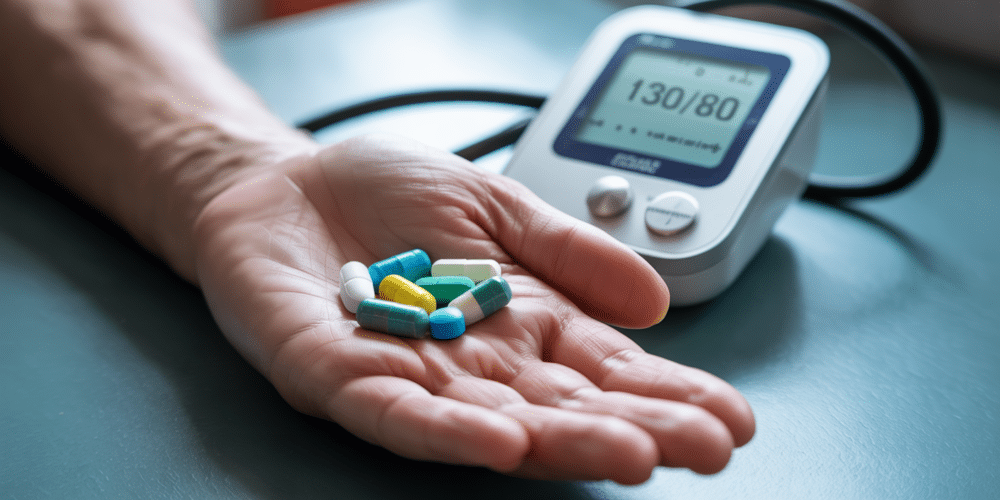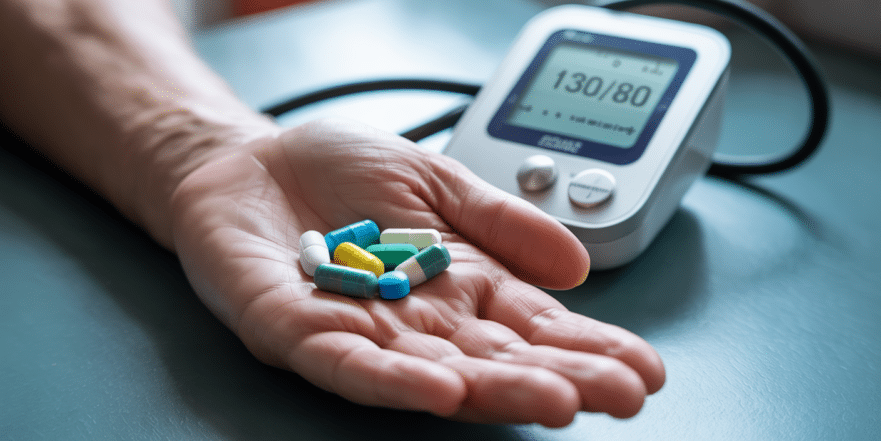
If you’re one of the millions of people taking medication for high blood pressure, this is news you can’t afford to ignore. A massive 17-year study from Columbia University has uncovered significant risks associated with a widely prescribed drug, suggesting that a common alternative might be a much safer choice for many.
The groundbreaking research, which followed over 730,000 patients, compared two common blood pressure medications: chlorthalidone and hydrochlorothiazide. While both are effective at lowering blood pressure, the study found that chlorthalidone comes with a higher risk of serious side effects, potentially leading to dangerous health complications. This new evidence could change how doctors approach high blood pressure treatment.
Key Takeaways
- A major new study found that the blood pressure drug chlorthalidone is linked to a significantly higher risk of dangerously low potassium levels.
- Patients taking chlorthalidone were more than three times as likely to develop this condition compared to those taking a similar drug, hydrochlorothiazide.
- Low potassium can lead to serious health issues, including irregular heartbeats, kidney problems, and an increased risk of type 2 diabetes.
- If you take chlorthalidone, experts suggest talking to your doctor about monitoring your potassium levels or potentially switching to a safer alternative.
A Tale of Two Drugs
For years, both chlorthalidone and hydrochlorothiazide have been go-to treatments for high blood pressure. However, this new study, published in JAMA Internal Medicine, reveals a critical difference between them. Researchers discovered that 6.3% of patients taking chlorthalidone developed hypokalemia, the medical term for low potassium. In stark contrast, only 1.9% of those on hydrochlorothiazide faced the same issue. This means you could be over three times more likely to experience this side effect if you’re taking chlorthalidone.
Why Low Potassium Is a Serious Concern

You might not think much about potassium, but it’s an essential mineral your body needs for your heart and muscles to function correctly. When your potassium levels drop too low, it can throw your system out of whack. This can cause a range of problems, from confusion and dizziness to more severe issues like abnormal heart rhythms and kidney failure. The study found that chlorthalidone was also linked to other electrolyte imbalances and kidney function problems, making the choice of medication even more critical.
What Should You Do With This Information?
If you are currently taking chlorthalidone, the first step is not to panic or stop your medication. The most important thing is to have a conversation with your doctor. Based on this research, your doctor may want to monitor your potassium and electrolyte levels more closely. For many people, especially those who already have kidney problems or are at risk for low potassium, switching to hydrochlorothiazide could be a safer and better long-term choice. This study gives you and your doctor powerful new information to make the best decision for your health.
It’s Not Just About the Pills
While choosing the right medication is crucial, it’s only one part of managing high blood pressure. Don’t forget the power of lifestyle changes. Simple adjustments can have a huge impact on your numbers and overall health. Try to eat a diet rich in fruits, vegetables, and whole grains while cutting back on salt. Regular exercise, like walking or jogging, is also key. Finally, managing stress, limiting alcohol, and avoiding smoking are all proven ways to help keep your blood pressure in a healthy range.
Conclusion
Treating high blood pressure is a balancing act between lowering your numbers and avoiding unnecessary risks. This landmark study provides a vital piece of the puzzle, highlighting that not all medications are created equal. By understanding the potential risks of chlorthalidone, you are better equipped to work with your doctor to find a treatment plan that keeps your heart healthy and your body safe.

